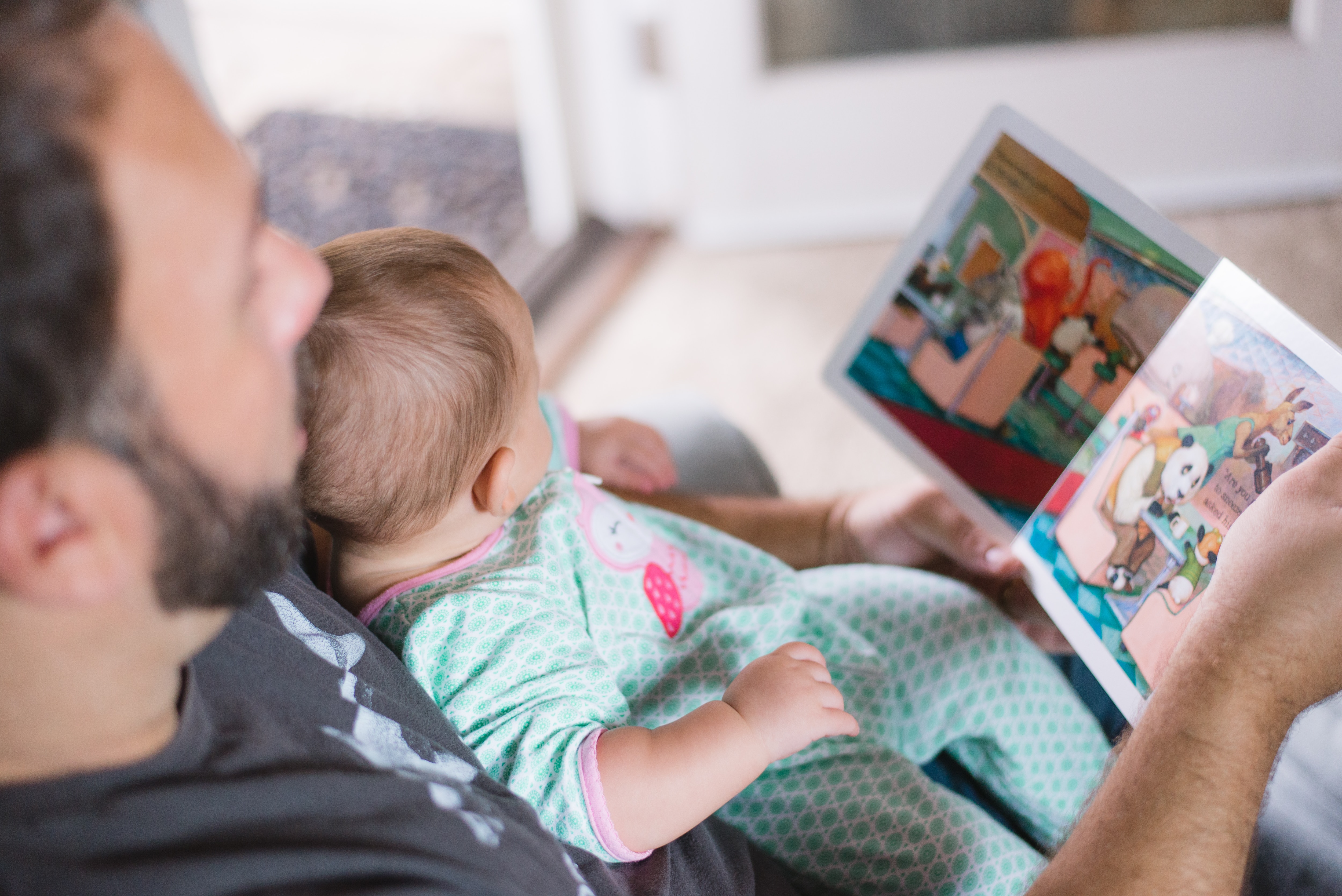Early literacy is regarded as the best investment in enabling children to develop skills that will benefit them for the rest of their lives. If you give it a deep thought you will notice that reading smoothly and loving to read is the key to academic success which consequently leads to self confidence and a strong personality.
There is no specific age where the child will automatically be ready to read, children do not become competent readers automatically. Reading is a process that starts to emerge as soon as there is adequate stimulation. Researchers call it Emergent Literacy.
Emergent Literacy starts with social stimulation and how the care giver reacts and talks to the child for example singing to the child while changing the diaper, describing any process like (Lets open the tap? WOW water, the water is cold, splash, splash .Close the Tap.)
Basically constantly interacting and talking to the child is the key to good oral language development which is the core requirement for early literacy.
My personal experience with children recommends starting as early as you possibly could.
At our nursery we consistently graduate children who can read a full sentence phonetically at the age of 3 and a half and 4 years. This wonderful and amazing result was achieved by providing adequate, early and consistent stimulation of the child. Always through fun NEVER by pressuring the child and by using an excellent reading program.
A very common mistake is to focus too much on literacy and numeracy skills and miss stimulating the preschoolers other developmental skills. For example allowing the toddler to feed himself is a fine motor skill development that will later lead to good pencil grip later on when writing is attempted.
Literacy is no longer perceived as simply a cognitive skill but a complex and active process, with cognitive, social, linguistic and psychological aspects (Teale&Sulzby, 1989).
Generally, Literacy includes all aspects of communicating in real world situations.
For the most high risk children, enriched preschool environments can be a deciding factor between success and failure later in life. Snow et al. (1998). That's why choosing a preschool is a very important task that parents should handle very carefully to ensure the best development for their child.
Early literacy Recommendations:
1. Talk to and interact with your child as early as within the womb.
2. Choose your babysitter very carefully and make sure she follows a good stimulation strategy.
3. Make sure the preschool you choose for your child follows a good early literacy stimulation program.
4. Provide age appropriate books for your child arranged in a quiet corner of the house.
5. Model reading for your child by letting him see you reading quietly.
6. Provide paper of different sizes and textures as well as child safe markers, to give your child the opportunity to imitate the writing process.
7. Bedtime story is crucial for early literacy.
8. Daily reading for even 10 minutes consistently will bring out the most amazing results.
9. For older children be careful with the (summer reading loss) by motivating your child to read or enroll in a good reading program.
10. NEVER FORCE READING ONTO A CHILD. ALWAYS USE MOTIVATION
By Dr.Mona Youssri
Child psychiatrist and CLC Owner

